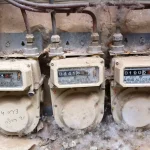As Poslovni Dnevnik writes, Mirjana Cagalj, the vice-president of the Croatian Chamber of Commerce, spoke for N1 Studio about the increase in the price of everything in the Republic of Croatia, especially in terms of construction materials.
When asked if inflation awaits Croatia as autumn approaches, Mirjana Cagalj’s short answer was a very simple no.
“There are some small indicators of that, but none that are so strong that we could now claim that there will be huge inflation coming,” Mirjana Cagalj told N1, emphasising how construction materials have really become more expensive in this country.
“Since back in November, when we monitor price movements, iron, copper and aluminum have risen in price by between 80 and 200 percent. Iron has risen by 150 percent, from 3.8 to 8.6 euros, copper from 2 and a few euros to 4.14 per kilogram, and there was an increase in prices of basic polypropylene products, components for pipes, from 800 to 2200 euros per tonne. No construction project can succeed very easily with prices like that.
This happened due to disruptions in oil prices, reduced production and now high demand. No one could have predicted any of that before the price jump, so those who agreed on deals before are now in trouble,” warned Cagalj, adding that work is happening on aiding projects faced with these obstacles.
“We’re communicating with the government, and we’ve been getting positive feedback from them. We warned the ministries about the increase in prices, and we received information on how this can be regulated – through the Law on Obligations and the Law on Public Procurement. The current regulations must be respected, but yes, they must be changed in the future,” said Mirjana Cagalj.
When it comes to the still continuing post-earthquake reconstruction of the City of Zagreb, contractors could also find themselves in hot water as a result of this huge price rise.
“Croatian Waters (Hrvatske vode) reacted quickly in agreement with the regulatory agency and gave instructions on how they plan to regulate prices, and a large number of ongoing projects also need to be regulated alongside that. If construction companies abandon a project, we’ll end up with much higher prices in the next tender. It’s better to regulate the price of certain things now than to lose a contractor.
When the Reconstruction Act was passed, the state regulated the maximum price. The state won’t interfere in public tenders, but it can help, as it helped companies during the coronavirus pandemic. Germany has issued an instruction to companies stating that if they’re late with the deadlines due to the procurement of materials, they won’t be punished for it, and other European countries have done the same,” said Cagalj.
For more, follow our dedicated lifestyle section.











